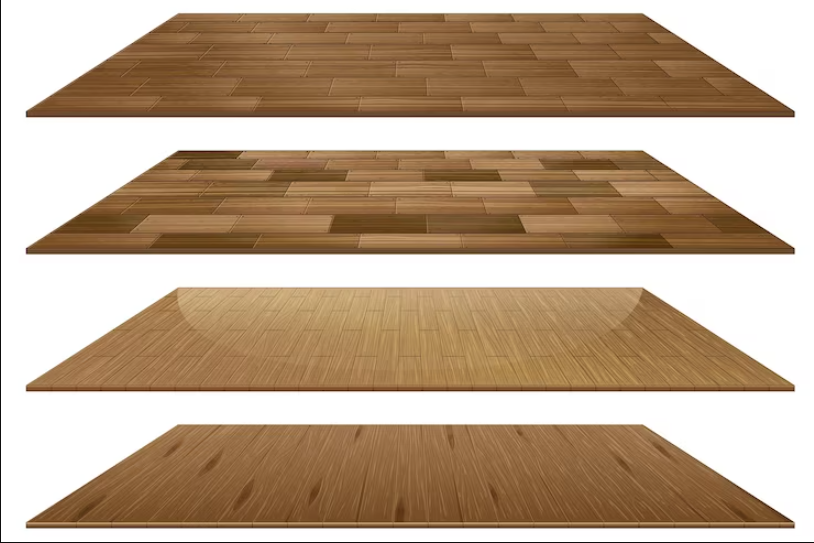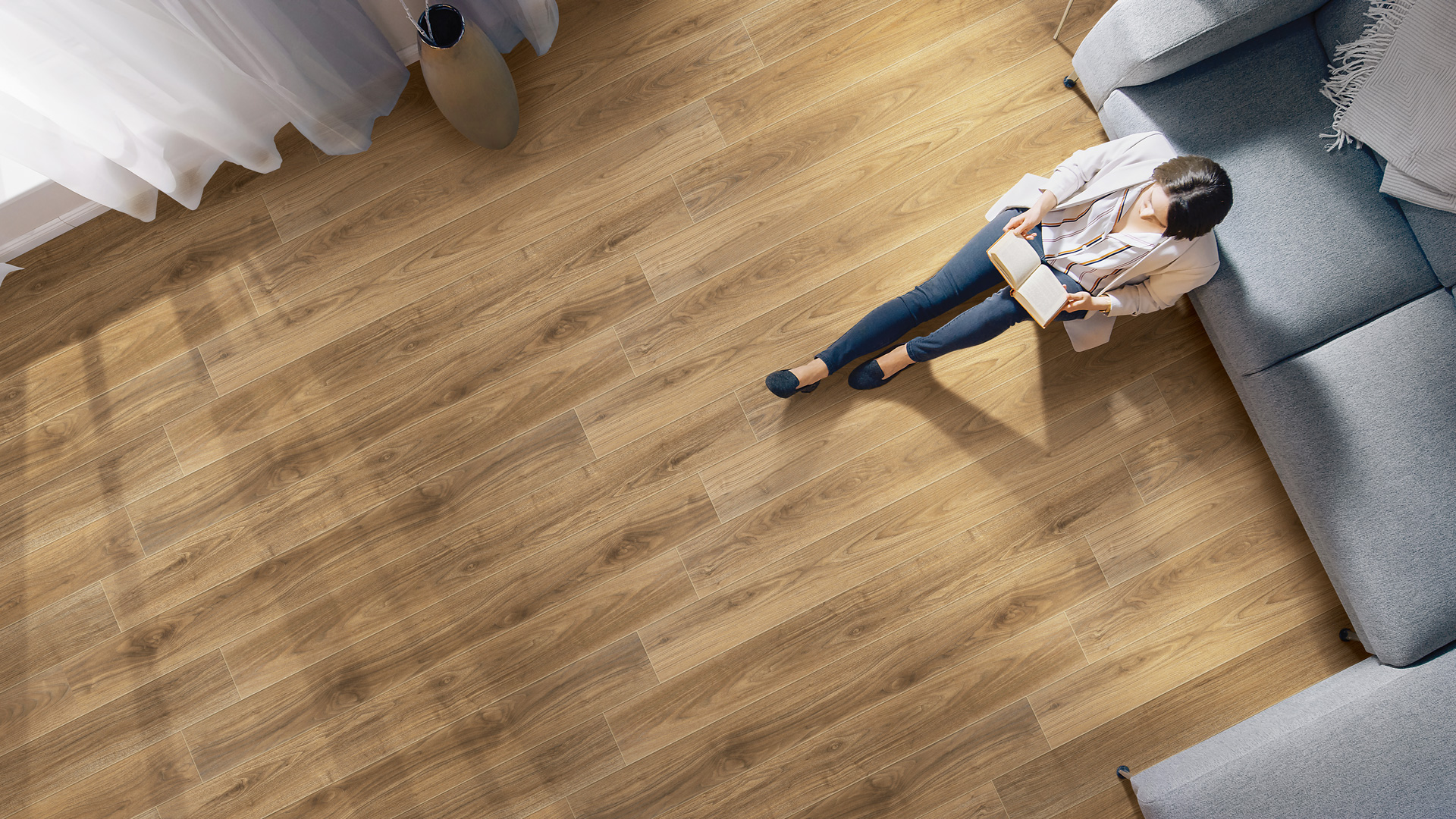Investing in your property not only enhances your living space but can also significantly increase its overall value. One of the most effective ways to achieve this is by Hardwood floor installation. In the United Kingdom, hardwood flooring has gained immense popularity for its timeless beauty, durability, and its ability to add value to a property.
In this comprehensive guide, we will delve into the world of hardwood floor installation in the UK. From the benefits of hardwood flooring to the types of wood available, installation methods, maintenance, and cost considerations, we will cover everything you need to know to make an informed decision about hardwood flooring. Whether you’re a homeowner looking to upgrade your property or a real estate investor seeking to maximize your property’s value, this guide is your go-to resource.
The Benefits of Hardwood Flooring

Hardwood flooring offers numerous advantages that make it an excellent choice for property owners in the UK. Some of the key benefits include:
A. Aesthetic Appeal: Hardwood floors exude a timeless and elegant beauty that complements various interior design styles.
B. Durability: Hardwood is known for its durability, and with proper maintenance, it can last for generations.
C. Property Value: Installing hardwood flooring can significantly boost your property’s value, making it a wise investment.
D. Easy Maintenance: Hardwood floors are relatively easy to maintain, requiring routine cleaning and occasional refinishing.
E. Improved Indoor Air Quality: Unlike carpets, hardwood floors don’t trap allergens, making them a healthier choice for your home.

Types of Hardwood Flooring
When considering hardwood floor installation in the UK, it’s essential to understand the various types of hardwood available. Some popular options include:
A. Oak: Oak hardwood is one of the most common choices due to its durability and versatility. It comes in various shades and grain patterns.
B. Walnut: Walnut hardwood is known for its rich, dark color and unique grain patterns, adding a touch of luxury to any space.
C. Maple: Maple hardwood is renowned for its light, even color and durability, making it an ideal choice for high-traffic areas.
D. Cherry: Cherry hardwood boasts a warm, reddish hue that darkens with time, enhancing the beauty of the wood.
E. Exotic Woods: For a unique and exotic look, consider options like Brazilian Cherry, Tigerwood, or Teak.

Installation Methods
Once you’ve selected the type of hardwood flooring you want, it’s essential to understand the various installation methods. In the UK, the two most common methods are:
A. Nail-Down Installation: This method involves securing the hardwood planks to the subfloor using nails. It’s a traditional and highly durable installation method.
B. Floating Installation: Floating floors are not attached to the subfloor. Instead, they “float” over an underlayment, which provides insulation and soundproofing.
C. Glue-Down Installation: Glue-down installation involves adhering the hardwood planks directly to the subfloor using adhesive. It’s a suitable option for concrete subfloors.
D. Engineered Hardwood: Engineered hardwood is a versatile option that can be installed using several methods, including nail-down, glue-down, and floating installations.

Maintenance and Care
Proper maintenance is crucial to preserving the beauty and longevity of hardwood flooring in the UK. Here are some tips for maintaining your hardwood floors:
A. Regular Cleaning: Vacuum or sweep your hardwood floors regularly to remove dirt and debris. Use a damp mop for deeper cleaning, but avoid excessive water.
B. Protective Measures: Place mats and rugs at entryways to prevent dirt and moisture from being tracked onto the floors. Use felt pads on furniture legs to avoid scratches.
C. Refinishing: Over time, hardwood floors may show wear and tear. Refinishing can restore their original beauty by sanding down the surface and applying a new finish.
D. Avoid Harsh Chemicals: Use hardwood floor-specific cleaners to avoid damage from abrasive or acidic substances.
E. Humidity Control: Maintain consistent humidity levels in your home to prevent warping or gapping in the wood.

Cost Considerations
The cost of hardwood floor installation in the UK can vary significantly based on several factors, including:
A. Type of Wood: The choice of wood, with exotic woods generally being more expensive than domestic options.
B. Quality: Higher quality hardwood is more costly but offers greater durability and aesthetics.
C. Installation Method: Different installation methods come with varying labor costs.
D. Subfloor Condition: The condition of your subfloor can affect installation costs. It may need preparation work if it’s uneven or damaged.
E. Location and Size: Installation in different rooms or larger areas will impact the overall cost.
F. Additional Services: Consider costs for underlayment, transition strips, and removal of existing flooring if necessary.
G. Finishing and Staining: If you choose unfinished hardwood, you’ll need to factor in the cost of finishing and staining.

Increasing Property Value
Hardwood floor installation is an investment that can significantly increase the value of your property in the UK. Real estate experts often consider hardwood floors a desirable feature for buyers, which can lead to higher resale prices and quicker sales. The timeless appeal of hardwood flooring and its reputation for durability and quality contribute to its property value-boosting potential.
Conclusion
Installing hardwood floors in your UK property is a sound investment that not only enhances the aesthetics of your space but also increases its overall value. Whether you choose oak, walnut, or another wood type, the benefits of hardwood flooring are undeniable. By understanding the installation methods, maintenance requirements, cost considerations, and property value enhancement, you can make an informed decision to elevate your property’s appeal and value with hardwood flooring. Start your journey toward a more beautiful and valuable home today.
Frequently Asked Questions (FAQs) about boosting the value of your property with hardwood floor installation in the UK:
1. What are the advantages of installing hardwood floors in my UK property?
- Hardwood floors offer timeless beauty, durability, ease of maintenance, and can significantly increase your property’s value.
2. Which types of hardwood are popular in the UK for floor installation?
- Oak, walnut, maple, cherry, and exotic woods like Brazilian Cherry and Teak are commonly used in the UK.
3. What’s the difference between solid hardwood and engineered hardwood flooring?
- Solid hardwood is made from a single piece of wood, while engineered hardwood is composed of multiple layers. Both have their advantages, but engineered hardwood is more suitable for certain environments.
4. How do I choose the right type of hardwood for my property?
- Consider factors like the room’s purpose, your design preferences, and budget when choosing the wood type.
5. What is the cost of hardwood floor installation in the UK?
- Costs vary depending on factors like wood type, quality, installation method, subfloor condition, and location. On average, expect to pay between £30-£100 per square meter.
6. What maintenance is required for hardwood floors in the UK?
- Regular cleaning, using hardwood floor-specific cleaners, and occasional refinishing are essential for maintenance.
7. Can hardwood floors be installed over concrete subfloors?
- Yes, hardwood floors can be installed over concrete using the glue-down method or engineered hardwood.
8. Is underfloor heating compatible with hardwood flooring in the UK?
- Engineered hardwood is a suitable choice for underfloor heating systems, which are becoming increasingly popular in the UK.
9. Are there environmental considerations when choosing hardwood flooring?
- Look for sustainable and certified wood options like FSC-certified hardwood to minimize environmental impact.
10. Can I install hardwood floors in a bathroom or kitchen in the UK?
- While it’s possible, moisture-prone areas like bathrooms and kitchens may require special considerations and finishes to protect the wood.
11. How long does the installation process typically take for hardwood floors?
- The timeline depends on the size of the area, the installation method, and any necessary preparation work. On average, it can take a few days to a week.
12. Can I install hardwood floors in an older UK property with uneven subfloors?
- Yes, but you may need to level the subfloor first, which could increase the overall cost and timeline.
13. What is the typical lifespan of hardwood flooring in the UK?
- With proper maintenance and occasional refinishing, hardwood floors can last for several decades, often more than 25 years.
14. Do hardwood floors increase property value in the UK?
- Yes, hardwood floors are considered a valuable and attractive feature, which can lead to higher property values and faster sales.
15. Can I install hardwood floors in a listed or historic building in the UK?
- It’s possible, but you may need to obtain necessary permissions, and it’s advisable to consult with preservation experts to ensure the historic character of the property is preserved while adding hardwood flooring.
These FAQs should provide you with valuable information to help you make informed decisions about hardwood floor installation in the UK and its potential to enhance your property’s value.

